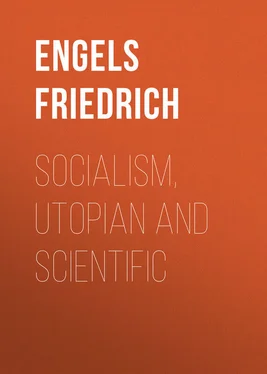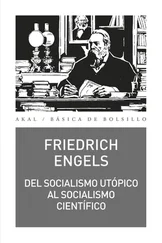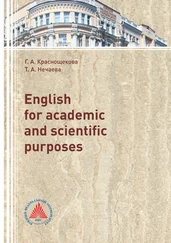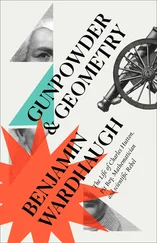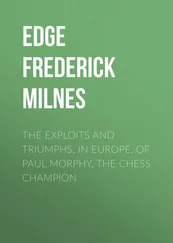Friedrich Engels - Socialism, Utopian and Scientific
Здесь есть возможность читать онлайн «Friedrich Engels - Socialism, Utopian and Scientific» — ознакомительный отрывок электронной книги совершенно бесплатно, а после прочтения отрывка купить полную версию. В некоторых случаях можно слушать аудио, скачать через торрент в формате fb2 и присутствует краткое содержание. Жанр: История, foreign_antique, foreign_prose, на английском языке. Описание произведения, (предисловие) а так же отзывы посетителей доступны на портале библиотеки ЛибКат.
- Название:Socialism, Utopian and Scientific
- Автор:
- Жанр:
- Год:неизвестен
- ISBN:нет данных
- Рейтинг книги:5 / 5. Голосов: 1
-
Избранное:Добавить в избранное
- Отзывы:
-
Ваша оценка:
- 100
- 1
- 2
- 3
- 4
- 5
Socialism, Utopian and Scientific: краткое содержание, описание и аннотация
Предлагаем к чтению аннотацию, описание, краткое содержание или предисловие (зависит от того, что написал сам автор книги «Socialism, Utopian and Scientific»). Если вы не нашли необходимую информацию о книге — напишите в комментариях, мы постараемся отыскать её.
Socialism, Utopian and Scientific — читать онлайн ознакомительный отрывок
Ниже представлен текст книги, разбитый по страницам. Система сохранения места последней прочитанной страницы, позволяет с удобством читать онлайн бесплатно книгу «Socialism, Utopian and Scientific», без необходимости каждый раз заново искать на чём Вы остановились. Поставьте закладку, и сможете в любой момент перейти на страницу, на которой закончили чтение.
Интервал:
Закладка:
"The real progenitor of English materialism is Bacon. To him natural philosophy is the only true philosophy, and physics based upon the experience of the senses is the chiefest part of natural philosophy. Anaxagoras and his homoiomeriæ, Democritus and his atoms, he often quotes as his authorities. According to him the senses are infallible and the source of all knowledge. All science is based on experience, and consists in subjecting the data furnished by the senses to a rational method of investigation. Induction, analysis, comparison, observation, experiment, are the principal forms of such a rational method. Among the qualities inherent in matter, motion is the first and foremost, not only in the form of mechanical and mathematical motion, but chiefly in the form of an impulse, a vital spirit, a tension – or a 'qual,' to use a term of Jacob Böhme's 1 1 "Qual" is a philosophical play upon words. Qual literally means torture, a pain which drives to action of some kind; at the same time the mystic Böhme puts into the German word something of the meaning of the Latin qualitas ; his "qual" was the activating principle arising from, and promoting in its turn, the spontaneous development of the thing, relation, or person subject to it, in contradistinction to a pain inflicted from without.
– of matter.
"In Bacon, its first creator, materialism still occludes within itself the germs of a many-sided development. On the one hand, matter, surrounded by a sensuous, poetic glamour, seems to attract man's whole entity by winning smiles. On the other, the aphoristically formulated doctrine pullulates with inconsistencies imported from theology.
"In its further evolution, materialism becomes one-sided. Hobbes is the man who systematizes Baconian materialism. Knowledge based upon the senses loses its poetic blossom, it passes into the abstract experience of the mathematician; geometry is proclaimed as the queen of sciences. Materialism takes to misanthropy. If it is to overcome its opponent, misanthropic, fleshless spiritualism, and that on the latter's own ground, materialism has to chastise its own flesh and turn ascetic. Thus, from a sensual, it passes into an intellectual, entity; but thus, too, it evolves all the consistency, regardless of consequences, characteristic of the intellect.
"Hobbes, as Bacon's continuator, argues thus: if all human knowledge is furnished by the senses, then our concepts and ideas are but the phantoms, divested of their sensual forms, of the real world. Philosophy can but give names to these phantoms. One name may be applied to more than one of them. There may even be names of names. It would imply a contradiction if, on the one hand, we maintained that all ideas had their origin in the world of sensation, and, on the other, that a word was more than a word; that besides the beings known to us by our senses, beings which are one and all individuals, there existed also beings of a general, not individual, nature. An unbodily substance is the same absurdity as an unbodily body. Body, being, substance, are but different terms for the same reality. It is impossible to separate thought from matter that thinks. This matter is the substratum of all changes going on in the world. The word infinite is meaningless, unless it states that our mind is capable of performing an endless process of addition. Only material things being perceptible to us, we cannot know anything about the existence of God. My own existence alone is certain. Every human passion is a mechanical movement which has a beginning and an end. The objects of impulse are what we call good. Man is subject to the same laws as nature. Power and freedom are identical.
"Hobbes had systematized Bacon, without, however, furnishing a proof for Bacon's fundamental principle, the origin of all human knowledge from the world of sensation. It was Locke who, in his Essay on the Human Understanding, supplied this proof.
"Hobbes had shattered the theistic prejudices of Baconian materialism; Collins, Dodwall, Coward, Hartley, Priestley similarly shattered the last theological bars that still hemmed-in Locke's sensationalism. At all events, for practical materialists, Theism is but an easy-going way of getting rid of religion." 2 2 Marx and Engels, "Die Heilige Familie," Frankfurt a. M. 1845, pp. 201-204.
Thus Karl Marx wrote about the British origin of modern materialism. If Englishmen nowadays do not exactly relish the compliment he paid their ancestors, more's the pity. It is none the less undeniable that Bacon, Hobbes, and Locke are the fathers of that brilliant school of French materialists which made the eighteenth century, in spite of all battles on land and sea won over Frenchmen by Germans and Englishmen, a pre-eminently French century, even before that crowning French Revolution, the results of which we outsiders, in England as well as in Germany, are still trying to acclimatize.
There is no denying it. About the middle of this century, what struck every cultivated foreigner who set up his residence in England, was, what he was then bound to consider the religious bigotry and stupidity of the English respectable middle-class. We, at that time, were all materialists, or, at least, very advanced freethinkers, and to us it appeared inconceivable that almost all educated people in England should believe in all sorts of impossible miracles, and that even geologists like Buckland and Mantell should contort the facts of their science so as not to clash too much with the myths of the book of Genesis; while, in order to find people who dared to use their own intellectual faculties with regard to religious matters, you had to go amongst the uneducated, the "great unwashed," as they were then called, the working people, especially the Owenite Socialists.
But England has been "civilized" since then. The exhibition of 1851 sounded the knell of English insular exclusiveness. England became gradually internationalized, in diet, in manners, in ideas; so much so that I begin to wish that some English manners and customs had made as much headway on the Continent as other continental habits have made here. Anyhow, the introduction and spread of salad-oil (before 1851 known only to the aristocracy) has been accompanied by a fatal spread of continental scepticism in matters religious, and it has come to this, that agnosticism, though not yet considered "the thing" quite as much as the Church of England, is yet very nearly on a par, as far as respectability goes, with Baptism, and decidedly ranks above the Salvation Army. And I cannot help believing that under these circumstances it will be consoling to many who sincerely regret and condemn this progress of infidelity, to learn that these "new-fangled notions" are not of foreign origin, are not "made in Germany," like so many other articles of daily use, but are undoubtedly Old English, and that their British originators two hundred years ago went a good deal further than their descendants now dare to venture.
What, indeed, is agnosticism, but, to use an expressive Lancashire term, "shamefaced" materialism? The agnostic's conception of Nature is materialistic throughout. The entire natural world is governed by law, and absolutely excludes the intervention of action from without. But, he adds, we have no means either of ascertaining or of disproving the existence of some Supreme Being beyond the known universe. Now, this might hold good at the time when Laplace, to Napoleon's question, why in the great astronomer's Mécanique céleste the Creator was not even mentioned, proudly replied: Je n'avais pas besoin de cette hypothèse . But nowadays, in our evolutionary conception of the universe, there is absolutely no room for either a Creator or a Ruler; and to talk of a Supreme Being shut out from the whole existing world, implies a contradiction in terms, and, as it seems to me, a gratuitous insult to the feelings of religious people.
Читать дальшеИнтервал:
Закладка:
Похожие книги на «Socialism, Utopian and Scientific»
Представляем Вашему вниманию похожие книги на «Socialism, Utopian and Scientific» списком для выбора. Мы отобрали схожую по названию и смыслу литературу в надежде предоставить читателям больше вариантов отыскать новые, интересные, ещё непрочитанные произведения.
Обсуждение, отзывы о книге «Socialism, Utopian and Scientific» и просто собственные мнения читателей. Оставьте ваши комментарии, напишите, что Вы думаете о произведении, его смысле или главных героях. Укажите что конкретно понравилось, а что нет, и почему Вы так считаете.
